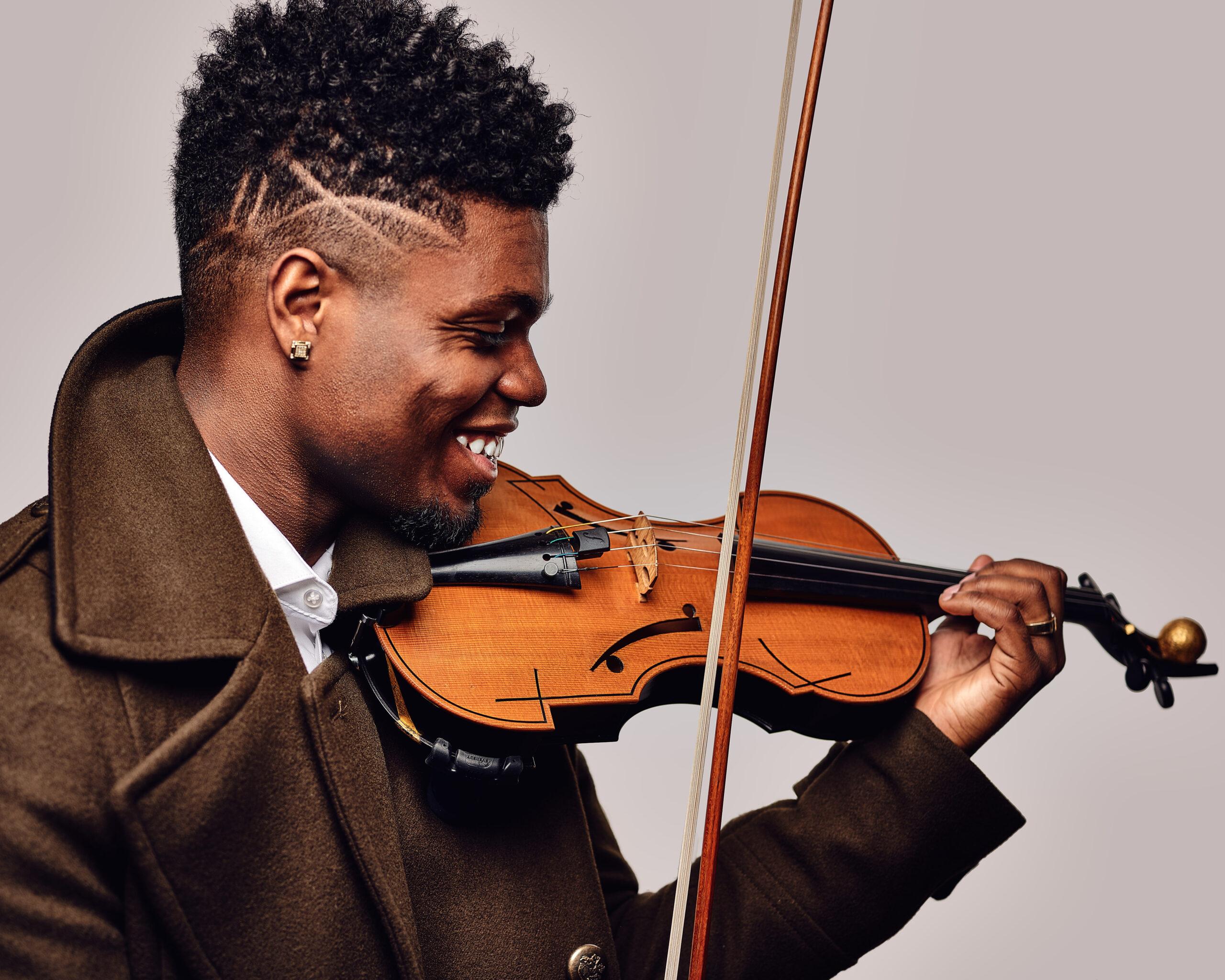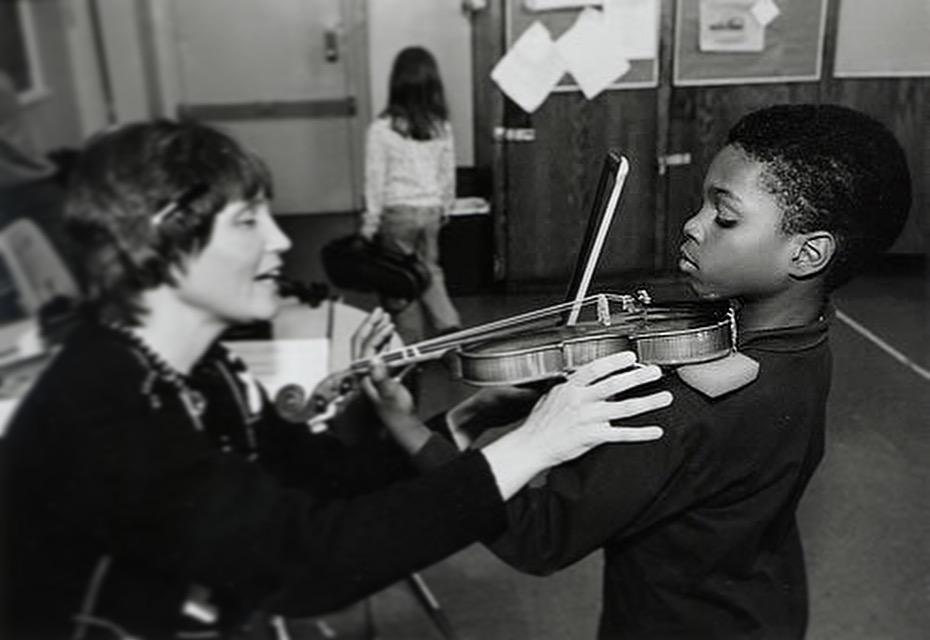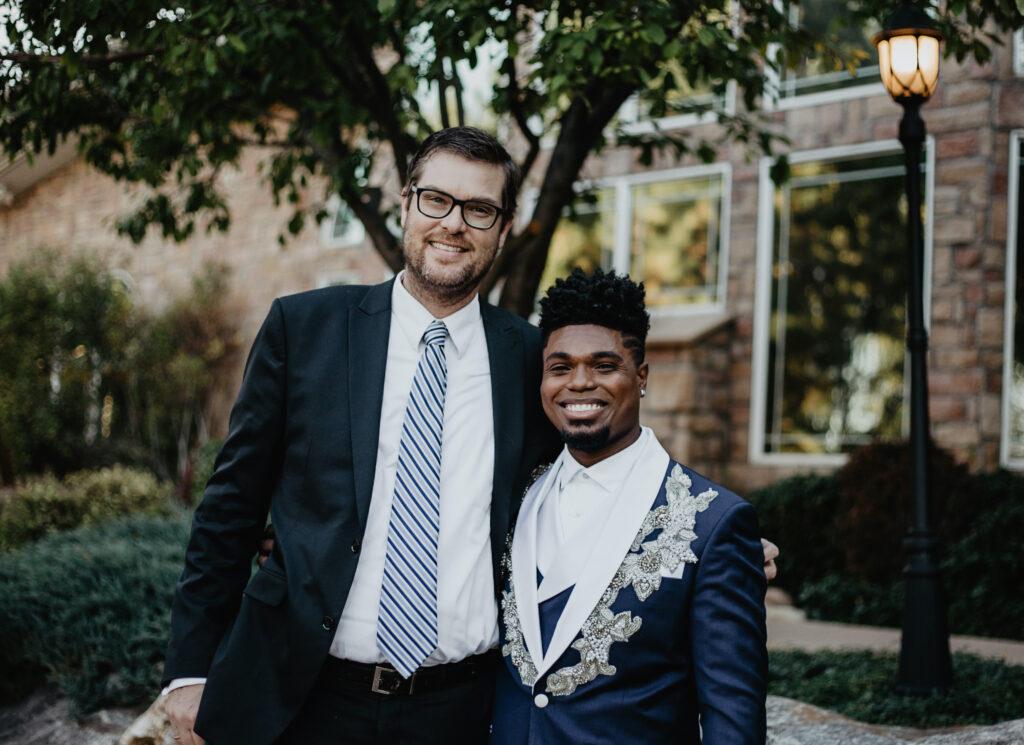
Edward Hardy fell in love with the violin at age seven. He was with his parents at his elementary school in Spanish Harlem in New York City when he heard some young violinists in an after school program. “I tapped my mom on the shoulder and just pointed in the direction of all the people playing.”
So, his parents enrolled him in that program, Opus 118, Harlem School of Music, a non-profit that provides elementary school children with quality music education. It was the same program featured in the film “Music of the Heart” starring Meryl Streep. Back then, it was a violin only program.
“The instruments had holes, some were all scratched up, some were in really poor condition… but that’s what we used.” Hardy says.
Harlem has a rich musical culture of jazz, blues, rap… but classical? Not so much. “In the neighborhood, there were no classical musicians that I knew,” Hardy says. And they made assumptions, he says. “Oh do you play Saxophone? Do you play the trumpet? It was always based off of my appearance and then trying to identify the typical type of music that one might see.” That made his dream of playing the violin more difficult. “It was a lot of ‘you can’t do this because of the way you look.” Hardy says. “Growing up, I didn’t really understand what that meant because I was always in music classes doing something I loved.”

Hardy turned those obstacles into determination. He practiced at all hours, supported by his parents, who didn’t mind him skipping church to play. “I couldn’t afford the nicer schools. My parents put their blood, sweat and tears into writing letters to try to get me some sort of funding.”
He attended the Juilliard School Music Advancement Program when he was ten. And by age 12, he was enrolled in both the Bloomingdale and Manhattan School of Music after school programs.
But he continued to run into obstacles. In high school, he was encouraged to ditch his beloved violin for a viola, again, because of the way he looked, he says. Viola was less competitive, he was told, and he might get more scholarships. “I still found my way back to violin through other artistic mediums… I just never stopped playing the violin.”
And he didn’t take much time off from practicing. For a few summers, starting at age 15, Hardy attended a six week music camp in the tiny Vermont town of Weston. One of the instructors was Dr. Jubal Fulks.
“He was a very tall man playing the violin beautifully, And he had these cool tattoos on his body,” says Hardy. “I just gravitated to the way he played...I just understood everything he said.” The two formed an instant connection and stayed in touch via Facebook. But Dr. Fulks would later have a profound effect on Hardy’s future.
In the meantime, Hardy attended Purchase College, a New York state university with world-class conservatory programs. He also created ties with the school’s theater department.
In his junior year, he wrote music for an off-Broadway show called “The Woodsman,” which imagines the origin story of the Wizard of Oz’s Tin Man told only through music. He also performed the violin in the show. Hardy received recognition and praise from the New York Times; “Edward W. Hardy, who composed the omnipresent music, plays the violin superbly throughout.” And New York Magazine wrote: “beautifully accompanied, almost continuously, by the violinist Edward W. Hardy.” The show won an Obie, or Off-Broadway Theater Award, in 2016.
Hardy ramped up his performance schedule after obtaining a Masters at the Aaron Copland School of Music, including at the Congressional Black Caucus and opening of the African-American Smithsonian Museum in 2016. Hardy also moved back to Harlem to play and compose music around New York City. And then, COVID hit. “I was performing a lot, and those performances turned into memorial concerts because of the impact COVID-19 had on the Harlem community.” Hardy says. “I was trying...to create more music that would help people… It didn’t help also watching the news and seeing all this gun violence.”
Hardy also wrote “Mama, now I can breathe” in the aftermath of George Floyd’s death.
In 2020, Hardy reunited with Dr. Jubal Fulks, the instructor he met years earlier, who was now a professor at the University of Northern Colorado in Greeley. Fulks attended Hardy’s wedding in Thornton, Colorado. “I was still in control until...I saw Dr. Fulks, and then I started crying,” says Hardy. “I didn’t know it was going to affect me like that. It just shows how much he means to me and my journey so far.”
Soon after, Hardy decided to move from New York to Colorado to study with Fulks. “I just have this very incredible, weird, grateful, blessed connection with Jubal. He understands me and I understand him.”
Even though they come from very different backgrounds, the two learned they had a lot in common. Dr. Fulks grew up in a farmhouse in rural North Carolina with no heat or indoor plumbing. He received a violin from a great aunt. “We didn’t have a lot of money, but my parents asked me if I wanted to play the violin,” says Fulks. “My older brother plays country music...I was supposed to go into that.”
Dr. Fulks was also pressured into playing the viola, like Hardy. Fulks - because of his large frame. Hardy - because he’d have a better chance at finding success. But both pursued their love of the violin and classical music, despite the challenges.
A path to classical music usually starts with privilege, Fulks says.
“There needs to be a certain level of income so you can afford an instrument and private lessons.” He says where he grew up, classical music education was exclusively in the cities. “Sometimes...you’d have to drive three hours to find a high school orchestra.”
And Fulks says relationships in classical music are everything. “Your connections and the relationships you maintain basically guide you through your career and they grow into the music that you hear,” he says.

That is certainly true for Edward Hardy. He loves the creativity he has found in Colorado. “I can compose music about my surroundings. Now I get to think about arriving at the mountain… going to the climax of a symphony,” he says.
But Hardy also stays close with his community in Harlem. In 2021, he founded the Omnipresent Music Festival there, which showcases the music and artistry of people of color. And he often travels back to New York to perform.
Hardy says he wants to be a professor so he can inspire others, like Dr. Fulks did for him. “Ultimately I want to create opportunities for people that look like me.”
Hear CPR Classical by clicking “Listen Live” at the top on this website, or download the Colorado Public Radio app. Listen on your radio to CPR Classical at 88.1 FM in Denver, or on radio signals around Colorado. You can also tell your smart speaker to “Play CPR Classical."









